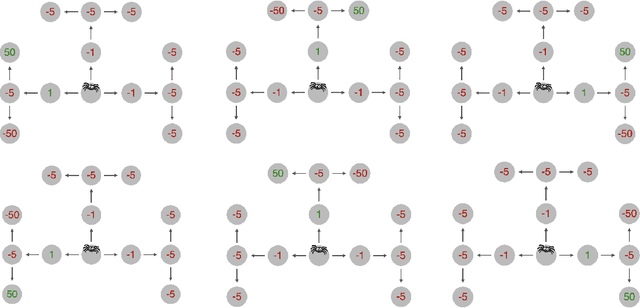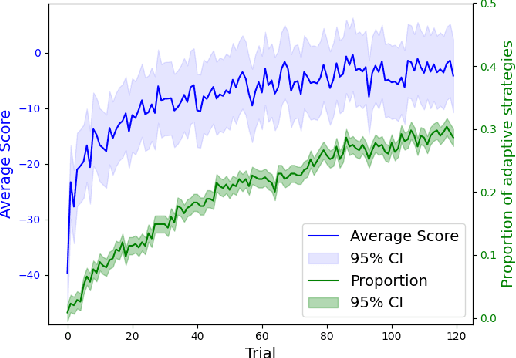Experience-driven discovery of planning strategies
Paper and Code
Dec 04, 2024



One explanation for how people can plan efficiently despite limited cognitive resources is that we possess a set of adaptive planning strategies and know when and how to use them. But how are these strategies acquired? While previous research has studied how individuals learn to choose among existing strategies, little is known about the process of forming new planning strategies. In this work, we propose that new planning strategies are discovered through metacognitive reinforcement learning. To test this, we designed a novel experiment to investigate the discovery of new planning strategies. We then present metacognitive reinforcement learning models and demonstrate their capability for strategy discovery as well as show that they provide a better explanation of human strategy discovery than alternative learning mechanisms. However, when fitted to human data, these models exhibit a slower discovery rate than humans, leaving room for improvement.
 Add to Chrome
Add to Chrome Add to Firefox
Add to Firefox Add to Edge
Add to Edge